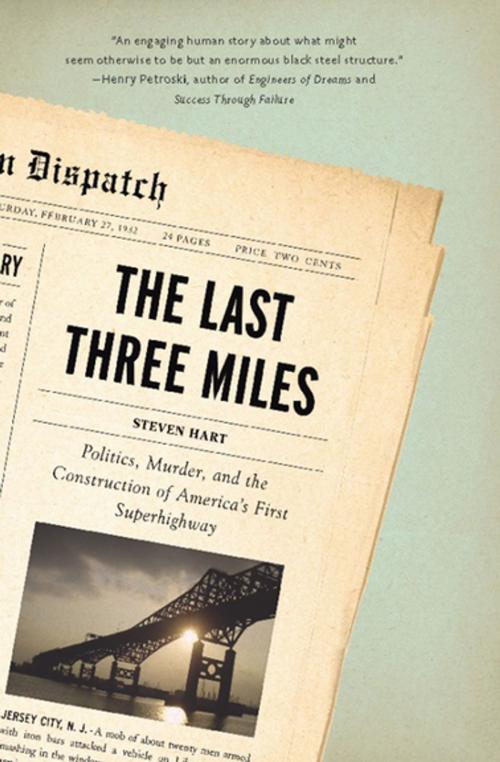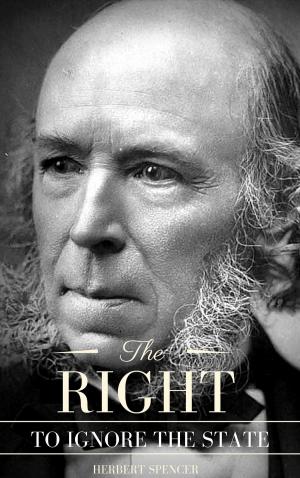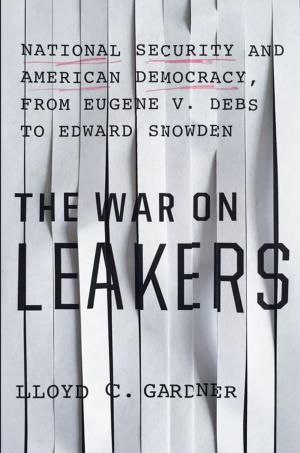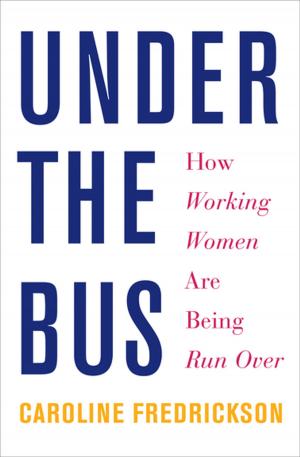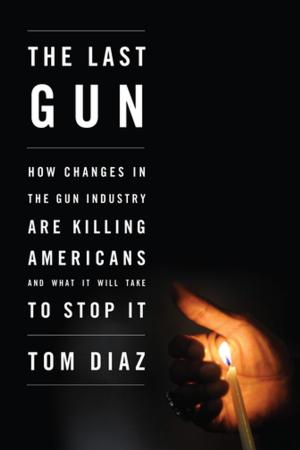The Last Three Miles
Politics, Murder, and the Construction of America's First Superhighway
Nonfiction, Social & Cultural Studies, Political Science, Politics, Labour & Industrial Relations, History, Americas, United States| Author: | Steven Hart | ISBN: | 9781595587480 |
| Publisher: | The New Press | Publication: | October 23, 2012 |
| Imprint: | The New Press | Language: | English |
| Author: | Steven Hart |
| ISBN: | 9781595587480 |
| Publisher: | The New Press |
| Publication: | October 23, 2012 |
| Imprint: | The New Press |
| Language: | English |
An investigative history of Depression Era power brokers and labor wars in the construction of the Pulaski Skyway across the New Jersey Meadowlands.
In the 1930s, as America’s love affair with the automobile began, cars and trucks leaving the nation’s largest city were dumped out of the Holland Tunnel onto local roads winding through New Jersey swampland. The Pulaski Skyway, America’s first “superhighway,” would change all that by connecting the hub of New York City to the rest of the country. But the corrupt and violent path to its completion would change much more for Jersey City’s residents and labor unions.
Jersey City mayor Frank Hague—dictator of the Hudson County political machine and a national political player—was a prime mover behind the ambitious transit project. Hague’s nemesis in this undertaking was union boss Teddy Brandle. Construction of the last three miles of the Pulaski Skyway, then simply known as Route 25, marked an epic battle between big labor and big politics, culminating in a murder and the creation of a motorway so flawed it soon became known as “Death Avenue”—appropriately featured in the opening sequence of HBO’s hit series The Sopranos.
A book in the tradition of Robert Caro’s The Power Broker and Henry Petroski’s Engineers of Dreams, The Last Three Miles brings to vivid life a riveting and bloodstained chapter in the heroic age of public works.
“A revealing look into how local politics can affect the design and construction of our national infrastructure, sometimes with disastrous results. Hart uses his considerable narrative talent to tell an engaging human story about what might seem otherwise to be but an enormous black steel structure.” —Henry Petroski, author of Engineers of Dreams and Success Through Failure
An investigative history of Depression Era power brokers and labor wars in the construction of the Pulaski Skyway across the New Jersey Meadowlands.
In the 1930s, as America’s love affair with the automobile began, cars and trucks leaving the nation’s largest city were dumped out of the Holland Tunnel onto local roads winding through New Jersey swampland. The Pulaski Skyway, America’s first “superhighway,” would change all that by connecting the hub of New York City to the rest of the country. But the corrupt and violent path to its completion would change much more for Jersey City’s residents and labor unions.
Jersey City mayor Frank Hague—dictator of the Hudson County political machine and a national political player—was a prime mover behind the ambitious transit project. Hague’s nemesis in this undertaking was union boss Teddy Brandle. Construction of the last three miles of the Pulaski Skyway, then simply known as Route 25, marked an epic battle between big labor and big politics, culminating in a murder and the creation of a motorway so flawed it soon became known as “Death Avenue”—appropriately featured in the opening sequence of HBO’s hit series The Sopranos.
A book in the tradition of Robert Caro’s The Power Broker and Henry Petroski’s Engineers of Dreams, The Last Three Miles brings to vivid life a riveting and bloodstained chapter in the heroic age of public works.
“A revealing look into how local politics can affect the design and construction of our national infrastructure, sometimes with disastrous results. Hart uses his considerable narrative talent to tell an engaging human story about what might seem otherwise to be but an enormous black steel structure.” —Henry Petroski, author of Engineers of Dreams and Success Through Failure
